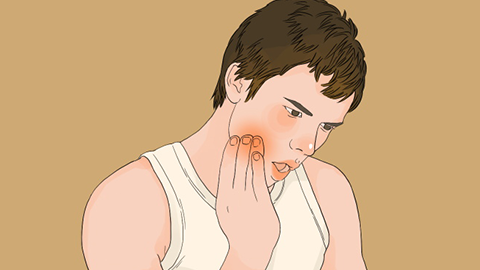Can toothache trigger migraine?
If toothache is caused by radiating pain due to conditions such as pulpitis or pericoronitis of wisdom teeth, it may trigger migraines; however, localized pain from shallow caries or dentin hypersensitivity typically does not lead to migraines. If toothache and migraine occur simultaneously, prompt medical evaluation is necessary to determine the underlying cause, followed by appropriate treatment as directed by a physician to prevent recurrent symptoms.

The dental pulp nerve is a branch of the trigeminal nerve. When acute pulpitis occurs, inflammatory stimulation causes severe pain in the pulp nerve. Pain signals travel along the trigeminal nerve to the head, potentially triggering ipsilateral migraines. This is often characterized by throbbing headaches, with pain intensity increasing alongside worsening tooth pain, and symptoms may become more pronounced at night.
During an acute episode of pericoronitis around a wisdom tooth, the gums become noticeably swollen and painful. The inflammation may spread to surrounding tissues, stimulating facial nerves and triggering migraines via neural reflexes. This is often accompanied by facial swelling and difficulty opening the mouth, with pain commonly concentrated near the temple area.
Daily oral care is essential: brush teeth thoroughly with a soft-bristled toothbrush each morning and evening, rinse the mouth with warm water or mild saline solution after meals, and schedule regular dental check-ups at a clinic.




